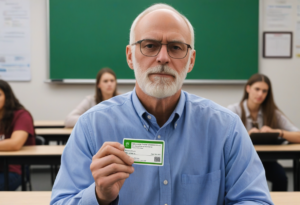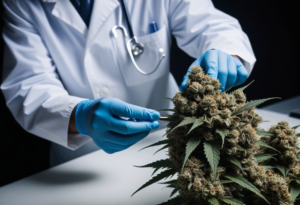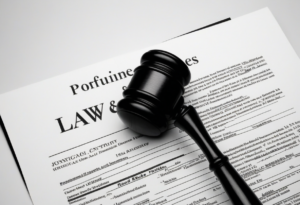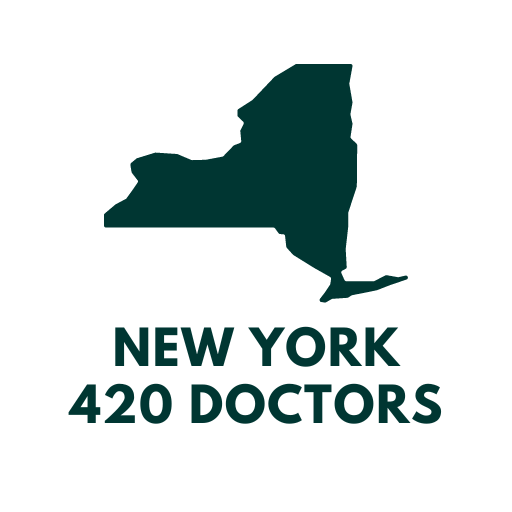With the growing acceptance of medical marijuana in states like New York, professionals across various fields are asking how this legalization might affect their careers. For teachers, the question is particularly important, given the high standards of professionalism required in educational settings. While New York State allows the use of medical marijuana for individuals with qualifying conditions, teachers must consider both state and federal laws as well as individual school district policies when determining whether holding a Medical Marijuana Card could impact their job.
New York State Law: Employment Protections for Medical Marijuana Users

The passage of New York’s Marijuana Regulation and Taxation Act (MRTA) in 2021 expanded protections for individuals using medical marijuana, including those in professional fields such as education. New York labor laws, particularly Section 201-D, offer certain employment protections, prohibiting discrimination against employees for engaging in legal activities outside of work hours, including using medical marijuana. As a result, teachers who use medical marijuana outside of work cannot be terminated solely based on their status as cardholders.
This means that a teacher who holds a New York Medical Marijuana Card and uses cannabis to manage a qualifying medical condition should be protected under state law, as long as they do not use marijuana during working hours or on school property. However, these protections only apply to off-duty use, meaning that any marijuana consumption during work hours or impairment on the job would violate workplace rules.
Federal Law: The Complications for Public Schools

Despite the protections offered by New York State law, teachers must be aware that federal law still classifies marijuana as a Schedule I controlled substance under the Controlled Substances Act. As such, marijuana is illegal at the federal level, regardless of its medical use under state law. This creates complications for teachers working in public schools or educational institutions that receive federal funding.
Public schools in New York often rely on federal grants and funding, which subjects them to Drug-Free Workplace Act requirements. This act mandates that employees in federally funded workplaces must comply with federal drug laws, which could potentially lead to conflicts if a teacher is found using medical marijuana. Even if a teacher uses medical marijuana legally under state law, the school’s reliance on federal funding might force the district to enforce federal regulations that prohibit marijuana use.
School District Policies and Drug Testing

Each school district in New York has the authority to create and enforce its own drug policies, which may include drug testing for teachers. Some districts may opt for random drug testing, especially for staff working in sensitive roles or supervising minors. Teachers who hold a medical marijuana card and test positive for cannabis during such a test may face disciplinary actions, including suspension or termination, depending on the district’s policy.
Teachers should always review their district’s drug policies to understand how medical marijuana use is viewed. While New York’s labor laws protect the off-duty use of medical marijuana, individual districts may have zero-tolerance policies that do not align with state law. These policies often aim to maintain a drug-free environment in schools, ensuring that teachers are not impaired during work hours.
For example, teachers working in districts with strict zero-tolerance policies may need to be particularly cautious, as a positive drug test could lead to dismissal, even if the marijuana use occurred off-duty. It is important for teachers to have transparent conversations with their employers about any medical marijuana use to avoid potential misunderstandings.
Licensing and Certification Considerations

New York’s process for obtaining a teaching license does not typically require applicants to disclose any medical conditions, including the use of medical marijuana. Therefore, holding an NY Medical Marijuana Card should not automatically disqualify someone from obtaining or renewing their teaching license. However, the state does conduct background checks for all teachers as part of the certification process.
While a medical marijuana cardholder may not have a criminal record related to their cannabis use, past legal issues involving drug possession could complicate the background check process. Any past arrests or convictions for marijuana possession, particularly if they occurred before the drug was legalized in New York, could affect an applicant’s ability to get certified as a teacher.
In addition, if a teacher works in a district with a stricter interpretation of drug-free workplace laws, even holding a medical marijuana card could create friction. School districts that prioritize federal regulations over state laws might view medical marijuana use unfavorably, making it difficult for teachers to maintain their employment.
Professional and Legal Implications

The professional and legal implications of holding a medical marijuana card while being a teacher can vary greatly depending on the specific circumstances of the school district, the teacher’s role, and the school’s drug policies. While New York law protects employees from being fired solely for off-duty medical marijuana use, certain school districts, particularly those that receive federal funding, may have stricter policies that conflict with state protections.
If a teacher’s marijuana use is discovered and conflicts with district policy, they could face termination, even if they were using the drug off-duty and for legitimate medical purposes. Teachers must be aware of the risks associated with working in federally funded schools, where drug-free workplace policies take precedence.
Moreover, the stigma surrounding marijuana use in certain communities could lead to reputational damage, even if the teacher is using the drug responsibly and legally. Teachers are held to high standards of conduct and are expected to serve as role models for students. Any perception of drug use, especially if it is misunderstood or sensationalized, could lead to complaints from parents or school administrators.
Federal vs. State Law Conflicts

Another layer of complexity comes from the ongoing conflict between state and federal laws. While New York has robust protections for medical marijuana users, federal laws still prohibit marijuana use. This contradiction creates legal gray areas, particularly in professions like teaching, where federal and state regulations intersect. Teachers who work for schools receiving federal funding must be particularly cautious, as federal law could supersede state law in certain situations.
In cases where a teacher works in a federally funded school district, the risk of federal law enforcement could override state protections. Teachers who rely on medical marijuana for chronic conditions may find themselves facing legal consequences if federal drug enforcement takes precedence over state protections.
Conclusion
Teachers in New York can hold a Medical Marijuana Card, but the situation is complex. While state law provides certain protections for off-duty cannabis use, federal law and individual school district policies can pose significant challenges. Teachers should review their district’s drug policies, be mindful of the potential implications of working in federally funded institutions, and ensure that their cannabis use does not impair their job performance or professional standing.
By understanding the nuances between state protections and federal restrictions, teachers can navigate their rights and responsibilities while using medical marijuana responsibly.

